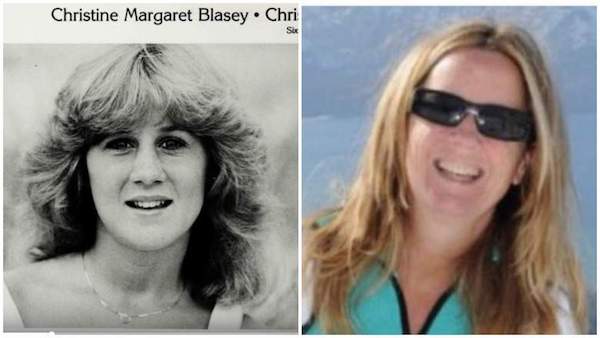

“Remaining silent doesn’t mean forgetting. It just means suffering in silence”, says the author.
Christine Blasey Ford has publicly accused Donald Trump‘s Supreme Court nominee Brett Kavanaugh of sexual assault decades ago. A look at what she is saying and how top lawmakers are responding.
The nomination of Judge Brett Kavanaugh seemed all but certain a few days ago, until a woman named Christine Blasey Ford came forward accusing him of sexual assault when they were in high school. The alleged crime having taken place decades ago has prompted many to ask: Why did she wait so long?
I can tell you why.
In a word … Fear
In my freshman year of college, I was the victim of something quite similar, on my 18th birthday. I understand why Dr. Ford remained silent. She was afraid. Afraid that no one would believe her – after all, she had been drinking. Fear if it went to court, her sex life would be revealed. Fear she would be judged. Fear her name would be dragged through the mud. And she’s not alone.
Rape and sexual assault are the most underreported crimes in our nation. Worldwide, one in three women experience some sexual violence in their lifetime, according to the World Health Organization. Yet it is fear that keeps them from coming forward.
Remaining silent doesn’t mean forgetting. It just means suffering in silence.
We judge victims of sexual violence harshly in our society. Juries have at times acquitted the accused simply based on the way a woman was dressed.
The issue of how much time has lapsed has even been the subject of a landmark legal case: 1994’s People v. Brown.
But remaining silent doesn’t mean forgetting. It just means suffering in silence. Dr. Ford spoke of the psychological trauma. If you Google “psychological factors that inhibit reporting of sexual violence” you’ll find there are numerous articles and studies on this very issue. But the question still remains: Does the length of time that has lapsed after the alleged incident lessen the significance of a victim’s claim?
It shouldn’t, but it does.
And should she or any other victim be believed? Well the National Sexual Violence Resource Center states that 2 to 10 percent of victims’ claims are false. Meaning at least 90 percent are telling the truth.
So, if fear prevented her from reporting this, why come forward now? Well for any woman who has been abused by a man and sees that individual gain influence and power years later, it hits you in the face like a bucket of cold water. It’s shocking, startling, unjust. And it’s a reminder. A reminder of the incident, a reminder of the pain and a reminder that you remained silent. Even in light of the #MeToo movement, only a handful will come forward like Dr. Ford. For the rest, the silence continues.
I am guilty of that silence. Just last year, someone from college re-connected with me on Facebook. We talked about what some of our classmates are doing now, including the one from my 18th birthday. When I found out he is a successful professional in chosen career, it sickened me. I wanted to tell someone. But I didn’t. Fear prevented me from picking up the phone.
In coming forward, Dr. Ford is overcoming her fear. And that, I would imagine, will truly help her to heal.
I only wish I could be as brave.
(The author joined Fox News Channel as a contributor in 2009; providing analysis on both political and social issues from a liberal point of view. A nationally syndicated talk host, whose program, “The Leslie Marshall Show” can be heard on radio, stream, “Tune In,” “The Progressive Voices Radio Network,” and “The Armed Forces Radio Network.”)
(Source: Facebook)





Be the first to comment